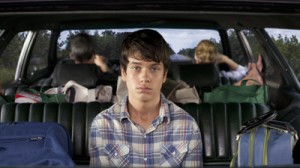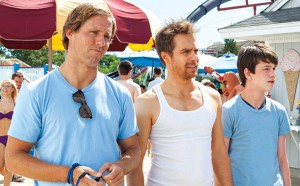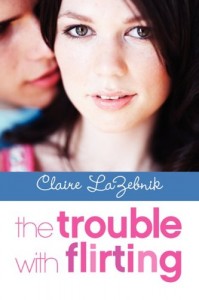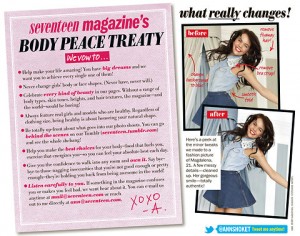The Way Way Back
Posted on July 5, 2013 at 9:12 pm
B+| Lowest Recommended Age: | High School |
| MPAA Rating: | Rated PG-13 for thematic elements, language, some sexual content, and brief drug material |
| Profanity: | Some strong language |
| Alcohol/ Drugs: | Drinking and drunkenness, drug reference |
| Violence/ Scariness: | Emotional confrontations |
| Diversity Issues: | Insensitive treatment of a person with a disability |
| Date Released to Theaters: | July 5, 2013 |
| Date Released to DVD: | October 21, 2013 |
| Amazon.com ASIN: | B00DL46ZN8 |
 Nat Faxon and Jim Rash, Oscar winners for the screenplay of “The Descendants,” have written, produced, and directed an endearing coming-of-age story called “The Way Way Back,” appearing in it as well. At times it seems there have been as many movies of the summer that changed some adolescent’s life as there have been adolescents to face the daunting challenges of growing up. It is a daunting challenge, as well, to make this story fresh and meaningful, but Faxon, Rash, and their exceptionally capable cast have managed, with a story that is specific enough to feel new but universal enough to hit home.
Nat Faxon and Jim Rash, Oscar winners for the screenplay of “The Descendants,” have written, produced, and directed an endearing coming-of-age story called “The Way Way Back,” appearing in it as well. At times it seems there have been as many movies of the summer that changed some adolescent’s life as there have been adolescents to face the daunting challenges of growing up. It is a daunting challenge, as well, to make this story fresh and meaningful, but Faxon, Rash, and their exceptionally capable cast have managed, with a story that is specific enough to feel new but universal enough to hit home.
Liam James plays Duncan, who gives the movie’s title its double resonance as we first see him, facing the back window of an old station wagon driven by his mother’s new boyfriend, riding in the “way back.” We can feel everything he knows, everything that feels like home and welcome and normal to him receding into the distance. He’s looking back.
Trent (Steve Carell), the boyfriend, in the driver’s seat, is looking back, too. He is sizing Duncan up in a primal urge to establish Duncan’s mother, Pam (Toni Collette), as his territory. We see his eyes in the rear view mirror. The tone is friendly, avuncular, even paternal but the words are devastating. He asks Duncan how it rates himself on a scale of one to ten. When Duncan ventures a six, Trent tells him he’s a three. And he expects Duncan to use his time at the beach house to “get that score up.”
Duncan is in teen hell. And his mother’s happiness makes him feel at the same time happy for her and fury and isolation at her inability to see that Trent is a bully and a liar.
 Then one day Duncan wanders off and finds a water park called Water Wizz, where he meets an amiable slacker of a manager named Owen (Sam Rockwell). Soon, he is working there. He’s found his home.
Then one day Duncan wanders off and finds a water park called Water Wizz, where he meets an amiable slacker of a manager named Owen (Sam Rockwell). Soon, he is working there. He’s found his home.
It would be so easy to mess this up. Trent could be a caricature. Owen could be idealized. But Faxon and Rash wisely let us understand that we are seeing both of them in slightly exaggerated form through Duncan’s eyes. We know that Trent is not as bad nor Owen as good as Duncan thinks they are. Duncan sees Trent as a liar and a cheat, but does not see him struggle to deserve a woman like Pam. Duncan sees Owen as a courageous free spirit. Owen loves being seen that way, but he knows and we know that he is irresponsible and ashamed of his life. Faxon and Rash, who contribute their own performances of wit and heart, make the movie a safe place for us as Water Wizz is for Duncan.
Parents should know that this film includes drinking, smoking, strong language, drug use, sexual references, infidelity, and bullying.
Family discussion: What did Pam and Trent see in each other? How do the various children and teens in this story respond when they cannot find support and understanding at home? What other stories are examples of this?
If you like this, try: “Little Miss Sunshine” and “Adventureland” (both rated R)


